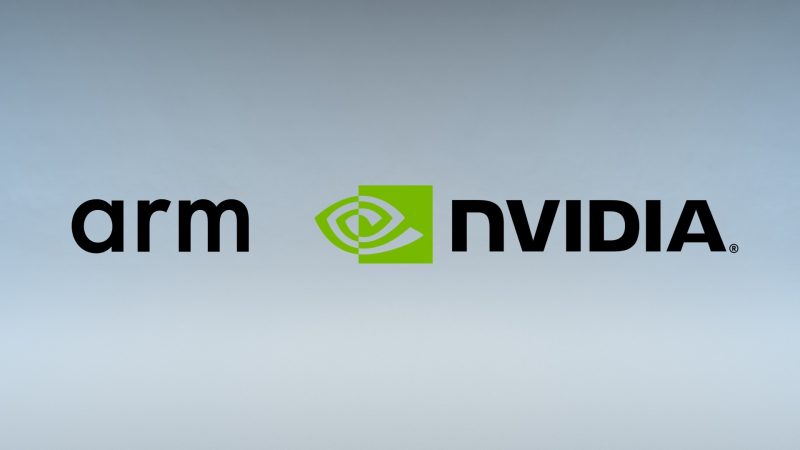 INFRA
INFRA
 INFRA
INFRA
 INFRA
INFRA
Nvidia Corp. is moving to scrap its proposed $40 billion acquisition of chip design firm Arm Ltd., Bloomberg reported today.
The sources cited by Bloomberg added that SoftBank Group Corp., which owns Arm, plans to take the chip design firm public in the event the acquisition process is halted.
Nvidia’s shares dropped more than 5% in trading today on the report.
Nvidia is the industry’s leading maker of graphics chips and cards for data centers and personal computers. U.K.-based Arm, in turn, sells chip designs that form the basis of many semiconductor products, including the processors in most smartphones. In Sept. 2020, Nvidia announced plans to acquire Arm for $40 million from SoftBank.
Nvidia is quietly preparing to abandon the transaction, according to Bloomberg’s report today. The company is said to have told partners that it doesn’t expect the acquisition to go through. SoftBank, meanwhile, is reportedly preparing to take Arm public, in what represents another sign that the companies believe there is only a limited chance of the transaction closing.
Nvidia reportedly started making preparations to to scrap the deal after making little progress toward securing the necessary regulatory approvals. The $40 billion transaction has drawn significant scrutiny from regulators, as well as some rival companies, since its announcement in late 2020.
In October 2020, analysts told CNBC that they believe Nvidia’s proposed acquisition of Arm could face scrutiny from regulators in China. In January 2021, the U.K.’s Competition and Market Authority announced plans to investigate the acquisition. This past November, the Competition and Market Authority launched a broader Phase 2 investigation of the deal on both competition and national security grounds.
Most recently, the U.S. Federal Trade Commission filed a lawsuit a few weeks ago to block Nvidia’s acquisition of Arm on antitrust grounds. The FTC said that the combined firm “would have the means and incentive to stifle innovative next-generation technologies.”
The FTC is concerned about several potential antitrust issues that could emerge if the acquisition goes through. One is that many Nvidia rivals use Arm’s chip designs to develop products. The FTC said that, should Nvidia obtain Arm’s chip designs, it would gain the “ability and incentive to use its control of this technology to undermine its competitors.” Such a scenario would reduce innovation while increasing prices for customers, the FTC said.
Another area of concern for the agency is the matter of Arm’s technical collaboration with its customers. Semiconductor companies that use Arm’s chip designs often share valuable technical data with the firm to help it improve its technology. The FTC is concerned that, in the event Arm becomes part of Nvidia, this industry dynamic could change, which might reduce innovation in the chip ecosystem.
A third point the FTC highlighted is that the acquisition might affect Arm’s product development roadmap. The agency believes Nvidia might prevent Arm from pursuing “innovations that Arm would have pursued but for a conflict with Nvidia’s interests.”
Several players in the chip ecosystem have also weighed in on the proposed acquisition. Qualcomm Inc. has reportedly shared objections to the Nvidia-Arm deal with multiple regulatory agencies. Last February, Bloomberg reported that Google LLC and Microsoft Corp. had also expressed concerns about the deal.
An Nvidia spokesperson told CNBC in a statement today that “we continue to hold the views expressed in detail in our latest regulatory filings — that this transaction provides an opportunity to accelerate Arm and boost competition and innovation.”
A SoftBank spokesperson said that “we remain hopeful that the transaction will be approved.”
To address regulatory concerns, Arm has said, it would take steps to prevent potential anticompetitive behavior in the event the acquisition closes. The chip design firm stated in 2020 that it would “keep the firewalls up between the two companies relative to confidentiality” and pledged not to give Nvidia earlier access than competitors to new technology. Nvidia, in turn, earlier stated that Arm will continue to operate its current open licensing model.
Nvidia already uses Arm chip designs in a number of products. The company’s Mellanox unit offers a system-on-chip line known as the BlueField series that’s based partly on Arm blueprints. BlueField chips help speed up computing tasks related to managing network traffic in data centers and orchestrating storage equipment. Additionally, Nvidia is using Arm technology to power its Aerial A100 AI-on-5G edge computing platform and an upcoming server processor.
The report that Nvidia is preparing to scrap the Arm deal comes as the company faces growing competition from Intel Corp. and Advanced Micro Devices Inc. in its core market for GPUs. Buying Arm would enable Nvidia to establish a bigger presence in areas outside GPUs. Arm’s chip designs are widely used in, among other products, mobile devices, an area where Nvidia currently has a limited market presence.
If the acquisition is canceled, Nvidia may take other steps to grow its presence in the markets where it could gain a bigger presence using Arm’s technology. The company could, for example, acquire other chipmakers with products complementary to its growth plans. Qualcomm, another major player in the chip market, has used acquisitions to grow its presence across the auto and CPU markets.
Support our mission to keep content open and free by engaging with theCUBE community. Join theCUBE’s Alumni Trust Network, where technology leaders connect, share intelligence and create opportunities.
Founded by tech visionaries John Furrier and Dave Vellante, SiliconANGLE Media has built a dynamic ecosystem of industry-leading digital media brands that reach 15+ million elite tech professionals. Our new proprietary theCUBE AI Video Cloud is breaking ground in audience interaction, leveraging theCUBEai.com neural network to help technology companies make data-driven decisions and stay at the forefront of industry conversations.